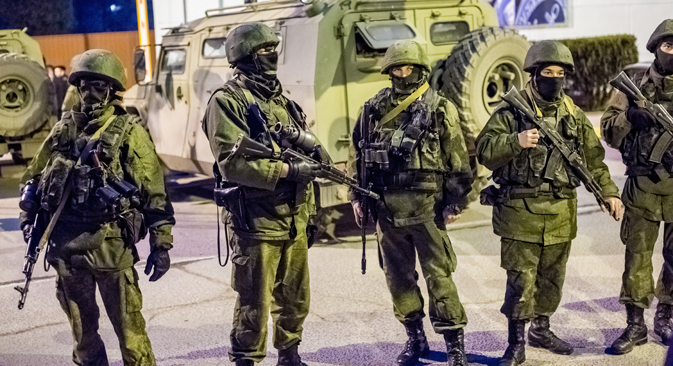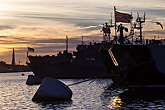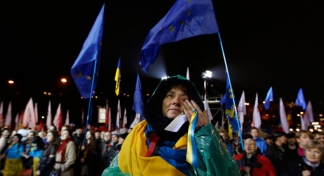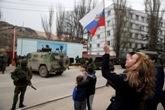What Russia wants in Ukraine

Western politicians have interpreted the authorization vote and the action in Crimea somewhat differently than Russian experts. Source: RIA Novosti
Russia’s Federation Council has authorized President Vladimir Putin to use force in Ukraine and Russian troops are active in Crimea, but Russian politicians and experts do not believe a full-scale war is unlikely.
Fyodor Lukyanov, the head of the Council for Foreign and Defense Policy of Russia and editor-in-chief of the magazine Russia in Global Affairs, noted that the Federation Council vote only provides Putin with the opportunity to use force – it does not oblige him to start an intervention.
Commenting on Russia’s troop movements in Crimea, Valentina Matviyenko, speaker of the Federation Council, said that Russia’s actions were intended to “ensure the safety both of the Black Sea Fleet and Russian citizens,” adding that those goals do not require parts of Ukraine to secede and join Russia.
Dmitry Suslov, deputy director of research programs of the Council for Foreign and Defense Policy of Russia, said that while many in the West have considered the authorization to use force a red line, in reality, it was a negotiation tactic. “This decision is rather of a negotiating, demonstrational character, showing that we are ready to consider all options,” Suslov said. “Moscow wants to put pressure on the West in this way, to demonstrate Russia’s disagreement with the status quo established in Kyiv. We want a government of national unity to be established in Kyiv that would represent all regions of Ukraine, including the southeastern ones.”
The future Ukraine could look more like a federation, according to Lukyanov. “In the conditions of the actual collapse of the former state and the political system in Ukraine, Russia intends to declare that the new Ukrainian state structure should be formed taking into account the interests and opinions of Russia. In practice, it will mean a federation or a confederation with wide powers for the subjects of this federation,” Lukyanov said.
The vote and the action in Crimea were intended to send a message not only to Western governments, but also to the local population, according to Suslov. “By supporting the resistance of Crimea, Moscow actually is making it clear to residents of the eastern regions that they can speak without the threat of persecution or lynching by Ukrainian nationalists,” Suslov said. “As a result, Russian flags are waving over Donetsk, Luhansk, Kharkiv, and local authorities have adopted resolutions on holding referendums to give additional powers to their regional councils (regional parliaments). And the sooner the government in Kyiv hears them, the sooner this crisis will end.”
Alexei Pushkov, a State Duma deputy and chairman of the Duma Committee on Foreign Affairs, who is considered a hawk, said that the Ukrainian authorities alone are to blame for the problems between Kyiv and the southeastern parts of the country. According to Pushkov, instead of taking measures to consolidate the country and restore order through perhaps declaring a day of mourning and granting a general amnesty, the new authorities in Kyiv alienated part of the population by ending the regional status of the Russian language and outlawing the Berkut Special Forces.
Meanwhile, Western politicians have interpreted the authorization vote and the action in Crimea somewhat differently than Russian experts. So far, however, Russian authorities have been unmoved by threats of sanctions and visa bans, possibly because the stakes of backing down on Ukraine at the request of Western governments are higher than staying the course, as long as a full-scale war can be avoided. “Should Moscow yield and agree with the status quo in Kyiv, this would be a colossal geopolitical defeat for Russia and Putin personally,” said Dmitry Suslov. “The question of Ukraine’s participation in the integration processes, focused on Russia, will be closed.”
It remains to be seen if Russian can maintain this balancing act, however. According to Fyodor Lukyanov, the Russian leadership just might be tempted by the opportunity “to solve the Ukrainian question.”
“Perhaps the Kremlin will decide that the cost associated with the implementation of this scenario would be less than the recurrence of the crises,” Lukyanov said.
All rights reserved by Rossiyskaya Gazeta.
Subscribe
to our newsletter!
Get the week's best stories straight to your inbox


